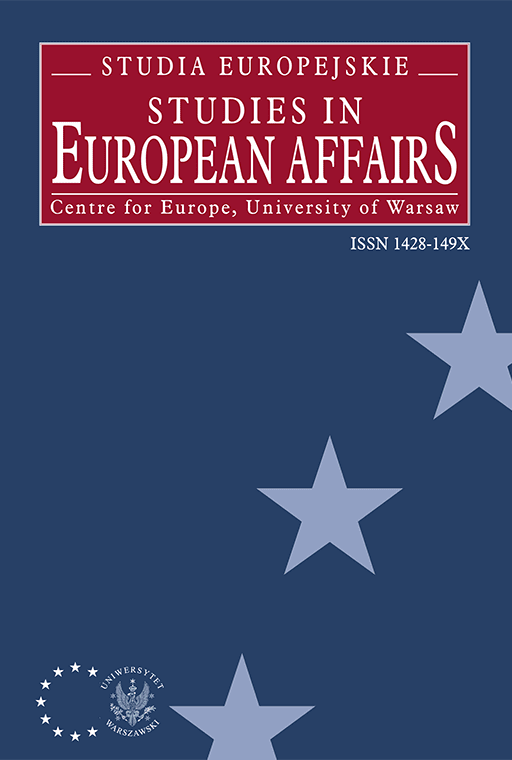
ISSUE: 2/2006
- Volume 38
- Number 2
- 2006
Subscribe NEWSLETTER
Studia Europejskie –
Studies in European Affairs
ISSN: 1428-149X
e-ISSN: 2719-3780
License
Articles published in the journal are under a Creative Commons Attribution – Non Commercial – No Derivatives 4.0 International License
Pozycja Komisji Europejskiej w trójkącie instytucjonalnym a proces stanowienia prawa po rozszerzeniu Unii Europejskiej
The role of the European Commission in the Institutional Triangle and decision making process after the enlargement
Abstract
What is the role of the European Commission in the Institutional Triangle after the Big Bang enlargements of 2004? This article analyses this question in the context of the decision-making process. Emphasis is put on the co-decision procedure – that was once considered revolutionary as it shifted the power from the European Commission to the European Parliament. The European Commission used to be the main player in the decisionmaking process for years, controlling any legislative proposal at each stage of the consultation and co-operation procedure. Until 1993 the European Parliament had always been perceived as the weakest player in the institutional struggle. With the introduction of the co-decision procedure at that time, however, power was shifted to the European Parliament, giving it, for the first time, instruments (i.e. amendments, etc.) to exert pressure upon legislative process. It has been revealed in a number of analyses, based on new institutionalism theoretical framework, that the European Council, together with the European Parliament, are able to influence the outcome of the legislative process without – or even against – the will of the European Commission. With the introduction, in 1997, of third reading and of the conciliation committee, the European Commission was forced to look for alternative solutions to prevail once again over the Institutional Triangle. It strongly favoured early, intensive contacts between EC officials, MEPs and Member States’ officials to ensure proper understanding of proposals and secure adequate support. At present, however, this situation might totally change with the arrival,
in 2004, of 10 new Members. Prior to 2004 years were spent on hard negotiation, with the European Commission, of details of the Accession Treaties. Trust is only built with time. New Members need assurance they are treated
as equal partners, even if still on a learning curve.
Language: Polish
Pages: 53-65
How to Cite:
Harvard
Hofmokl, J. (2006) "Pozycja Komisji Europejskiej w trójkącie instytucjonalnym a proces stanowienia prawa po rozszerzeniu Unii Europejskiej". Studia Europejskie – Studies in European Affairs, 2/2006, pp. 53-65.